Appreciated and beloved for her genuineness
Facility manager Cobi Noordhof leaves university after half a century
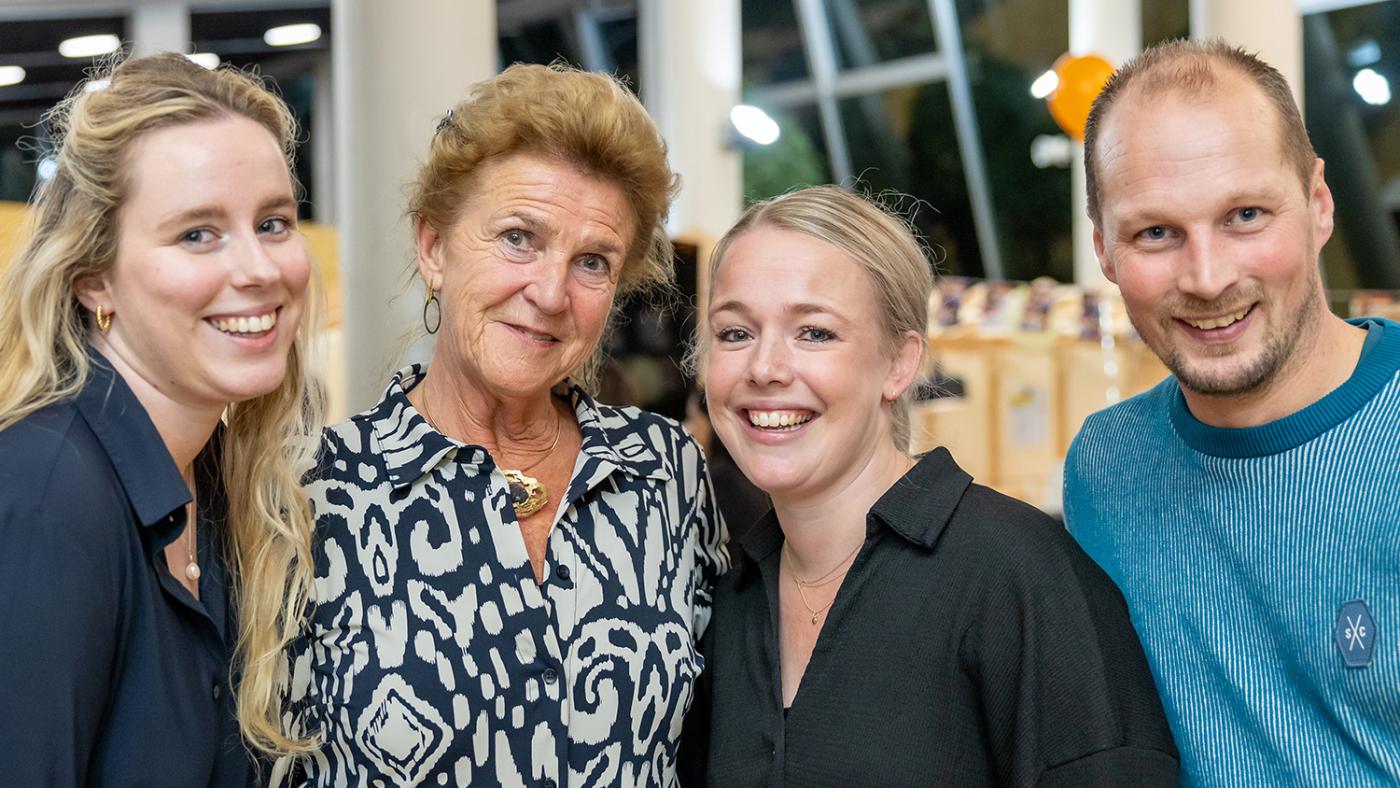
It was incredibly in character for Cobi Noordhof, the 150+ guests of her farewell party agreed. After a 50-year career in numerous positions at the university, the Facility Manager left with a message about connection.
Noordhof had asked playwright Tjerk Ridder to perform his show Trekhaak Gezocht (‘Towbar wanted’, Ed.) at a lecture hall at the Faculty of Veterinary Medicine. In the show, Ridder talks about his adventures when travelling from Utrecht to Istanbul in a trailer. To get ahead, he constantly needed the help of benevolent drivers with towbars on their cars.
“Tjerk’s play shows that we need each other,” Noordhof says. We sat down at Gutenberg café rather than in the Ruppert building, which is oh-so-familiar to her. She would run into familiar faces all the time there and never get around to talking to DUB. But here, too, she waves at a cleaning lady.
“You need people who build your confidence and you need to build other people's confidence too,” Noordhof continues. “I really believe in that.”
‘I'm in a good place as I say goodbye’
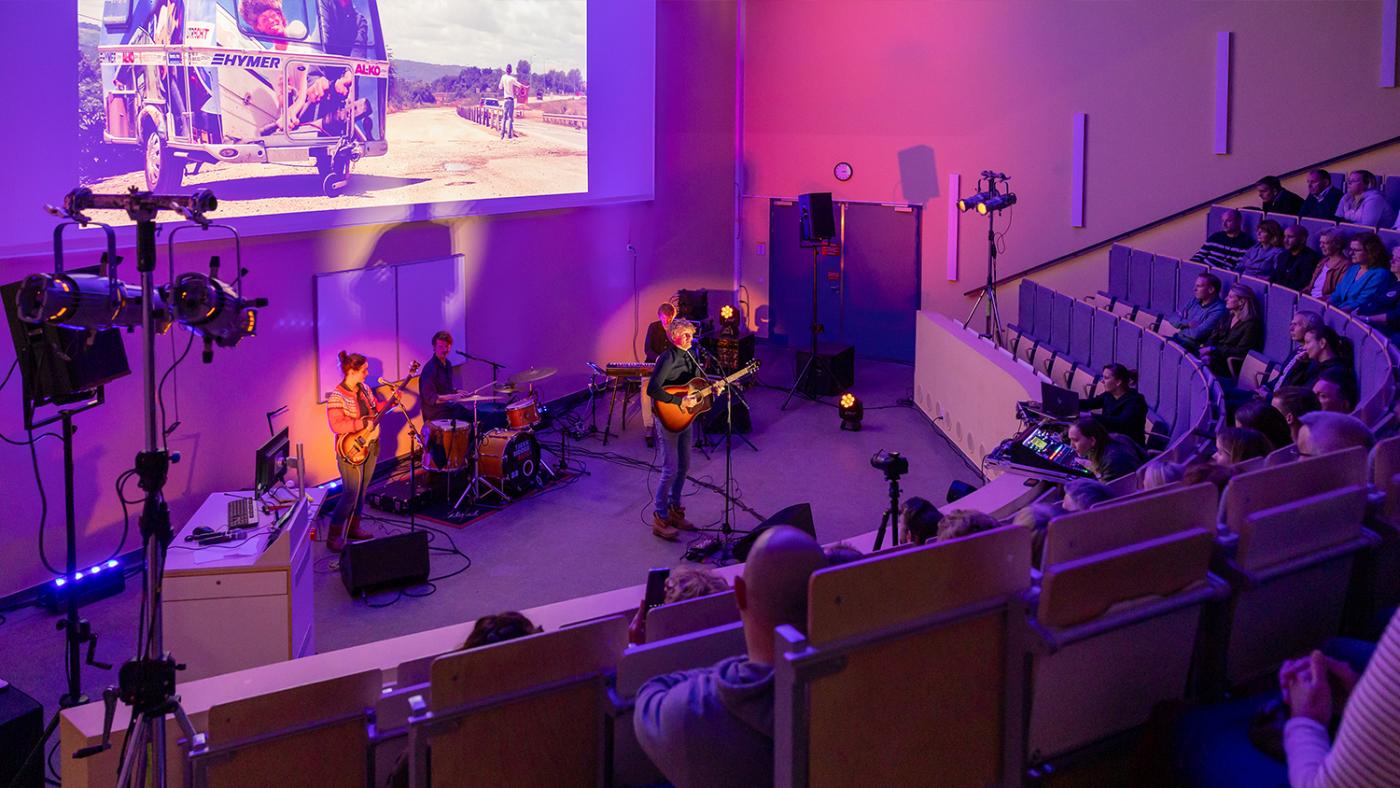
Cobi Noordhof bid farewell with a play. Photo: Dick Boetekees
For many students and staff in Utrecht Science Park – as she has started calling De Uithof – Cobi Noordhof was "the woman of the city centre buildings." Quite the appearance as well, many thought. Hair in an updo, well-dressed, straight posture – that’s how she walked through Ruppert, Van Unnik, and Educatorium.
Ask any of the facility staff on the Ruppert building’s ground floor what they thought of Noordhof and you will hear how much they appreciated her leadership. “A true people person”; “you could drop by her office at any time”; “she respected everyone’s opinions”; “she was always the first one in and the last one out”. One staff member says she is “the best boss I’ve ever had”.
The speeches at her farewell party made similar remarks. Everyone sang ABBA’s Mamma Mia, which she appreciated.
“I’m in a good place as I say goodbye. I’m leaving behind a good team and I’ve been able to coach my successor. I have faith that things will be okay without me.”
‘People like it when there are no hidden layers’
She thinks that things have come full circle after 50 years. Not that long ago, the university bought her parental home in the city centre (ASP 27), which will now be part of an educational centre between Achter Sint Pieter and Achter de Dom.
“My father used to be the caretaker of the Provincial House across the street, which is currently the Johanna Hudig building. On weekends, I would roller-skate through the hallways with my friend.”
She also cycled from that home to De Uithof for her first real job as a 17-year-old, wet-behind-the-ears, freshly graduated from secretary school. She became a secretary for the Staff Agency of the Department of Buildings and Housing.
She remembers there were only a few buildings on the university grounds at the time. It was mostly empty, save for Trans 1 (currently the Ruppert building), Trans 2 (Van Unnik building), Trans 3 (the since-demolished building where the new RIVM building is being built) and Trans 4 (currently the Kruyt building).
She started working in the Van Unnik building, parking her bicycle in the huge bicycle shed underneath it. After four years, she switched to what was then the Education Media Institute (OMI). She was asked to switch by the then-director Arie Smit, who would later become the Teleac director. That man would leave quite an indelible impression on her.
“He wasn’t just capable and intelligent, he was also ‘of the people’, and of ‘doing fun things’. He valued having a coffee together. It wasn't mandatory, except for that one colleague who wasn’t quite part of the group. That was so special to me. That’s how it’s done, I thought, that’s how you create a nice, safe environment for everyone. I’ve never had a better boss.”
She often remembered Smit when she first had to manage a team as head of the OMI audiovisual department. “I suddenly had to tell an engineer what to do. That was a big step. Somewhere inside, I was still that young, insecure girl, but things also went so smoothly. I’m good with people, I’m direct but in a calm way. And I’m genuinely interested in people, there are no hidden layers and people like that.”
‘I'm a fan of learning by doing’
In 1996, when OMI had to reorganise and the media support for education and research became decentralised, she was forced to have difficult conversations with “all those fun, creative people” whose positions became redundant.
She barely avoided losing her job herself, aged 40 at the time. “That’s when I started working with Facility Management, first as building manager at the Faculty of Social Sciences and later at the Facilities Service Centre. In the meantime, I pursued a facility management and housing degree at a university of applied sciences.”
She had long been bothered by the fact that she had obtained a higher education diploma. “But that wasn’t the main thing at the time. I just wanted to keep developing myself and acquiring more knowledge. I’m a fan of learning by doing, but it’s nice to be able to substantiate it with theory.”
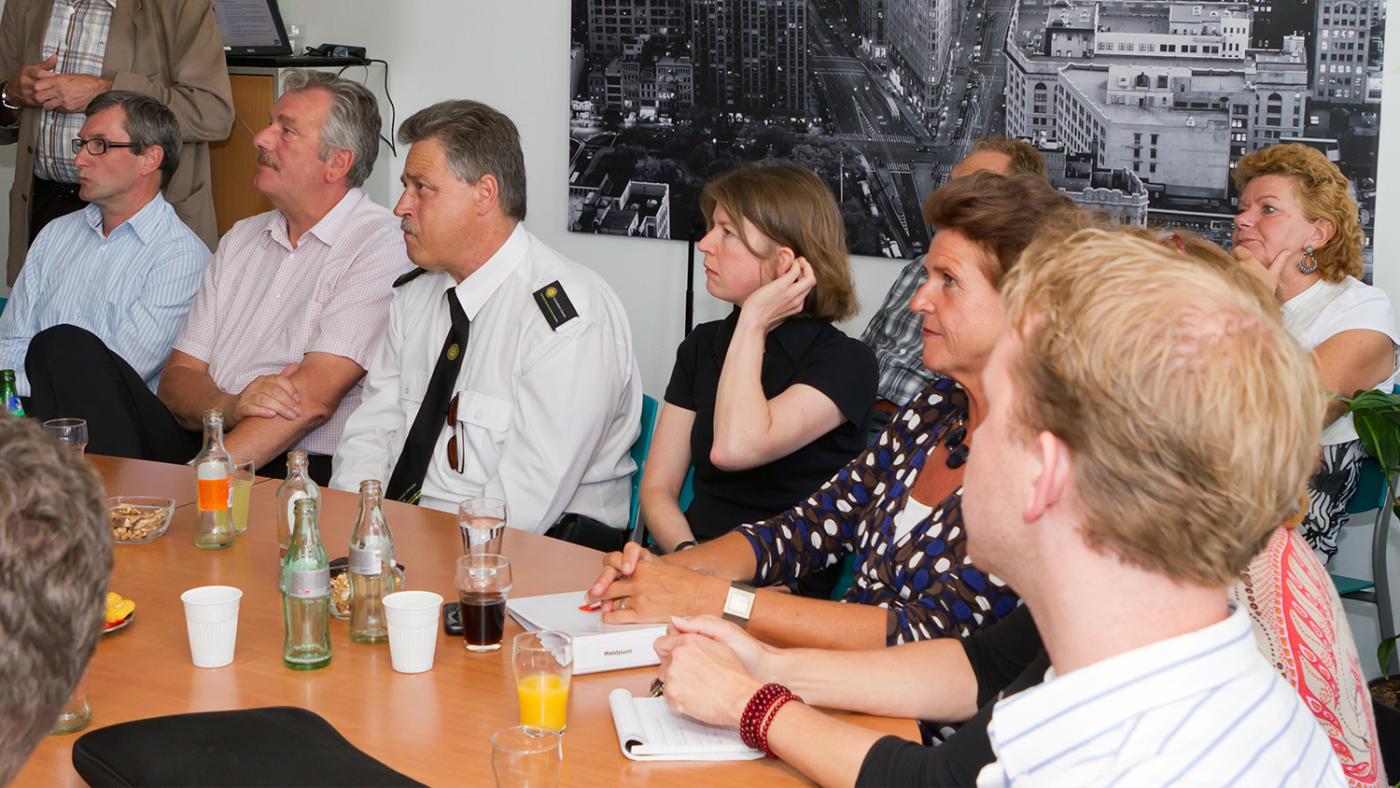
A photo of a meeting that also includes the former Head of Security Leo van Kuijk (second from the left) and the former Catering Manager Wil Sen (far right). Noordhof: "Unfortunately, many people with whom I used to work closely have already passed away." Photo: Dick Boekees
The safety of the students and staff working in the buildings she managed was always her number one priority. The importance of safety was evidenced in January 2007, when a massive construction crane fell on top of the Ruppert building. “After that incident, I never heard anyone say that we're creating procedures for situations that will never happen.”
At the time, Noordhof was the Service Point and Safety coordinator as well as head of the Emergency Response team. She had warned others about not trusting that crane twice.
“When you’ve worked at De Uithof for as long as I have, you know how bad the winds behind the Van Unnik building can get. It just didn’t feel right. The sounds it made felt ominous, I have absolute pitch. I mentioned this to the project leader. An hour before the crane fell, I reported it to security yet again. When I heard the bang, I immediately knew it was the crane.”
Three people were wounded. Luckily for the university, the accident happened during a break, so no classes or meetings were going on in the rooms affected. “I remember the search and rescue dogs came in and I had to ask for radio silence on all mobile radios. It was a huge relief when no one was found.”
‘I ducked when I drove underneath the viaduct’
Keeping calm in tense situations. That’s something many colleagues praise Noordhof for. She kept her cool during the crane disaster too, but that doesn’t mean she wasn’t affected by the incident.
“I remember ducking inside my car later that day when I drove underneath the viaduct. I thought: 'Oof, I need to watch out.' I look like a mess in pictures from back then. That January, my partner died as well.”
In 2006, she chatted with DUB about ALS, the terrible disease her husband suffered from. It was a horrible time for her, during which she visited the rehabilitation centre De Hoogstraat more often than she would have liked. Looking back on that time, she says she's learned something: “You truly come to know that humans can’t control everything.”
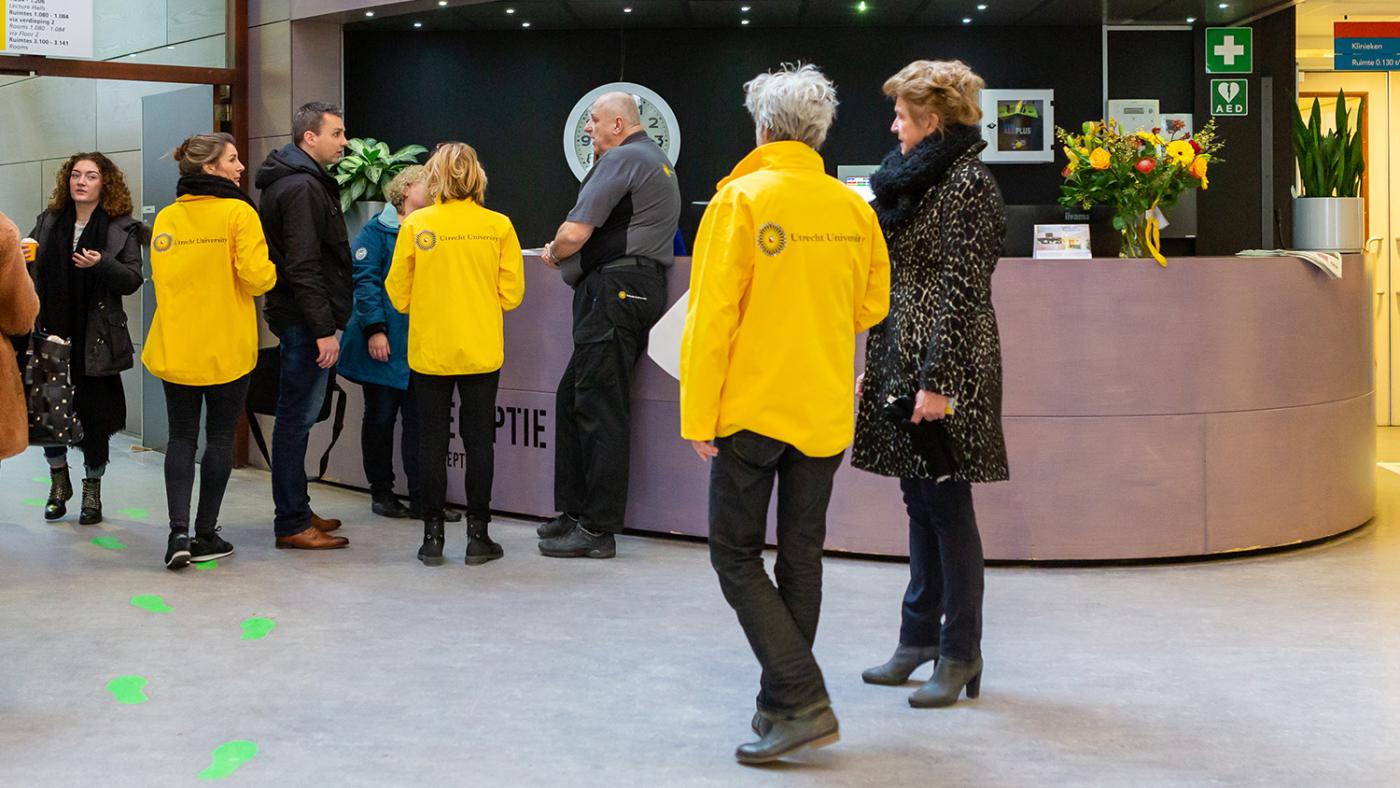
Photo taken when the lecture halls on Bolognalaan were put into use. Photo: Dick Boekees
‘'Continuing your studies anyway, I thought that showed such strength’
She started fighting for students and employees with disabilities, joining work groups that aimed to improve access to university buildings. Then, she became the go-to person for students with questions and issues in that regard.
“A student with a muscle disease often stopped by for a cup of coffee. His situation became worse and worse and then his mother became ill, too. But he wanted to keep studying. I thought that showed such strength. I was invited to his graduation ceremony. Being there, at Janskerk, felt like a beautiful present.”
‘A little more honesty would do everyone at the university good’
She always enjoyed having young people around her. She says she empathises with the current generation of students, on whose faces she can see the stress.
At the same time, students should not try to play games with her. Recently, she asked a student not to sit on the stairs in the Educatorium building and the student replied arrogantly (“a bit too posh, you know”), asking whether “madame didn’t have anything better to do”. The student got quite the lecture.
Everyone who knows Cobi Noordhof knows that she speaks her mind, it doesn’t matter if she’s talking to a student or a member of the Executive Board. She thinks it’s a shame that so few university employees dare say what they think.
“A little more honesty would do everyone at the university good. But many have a hard time speaking up. Tragically, that’s often sensible. Throughout the years, the institution has become a bit more hierarchical than it used to be. We say we want to be a safe, inclusive organisation, but are we checking whether or not we actually are?”
Noordhof is not the kind of person who likes gossip. “Sometimes, people are showered with compliments when they leave, even though everybody knows they aren’t sincere. That isn’t good for people’s confidence and trust.”
‘You're not just checking if the toilet paper rolls are hanging straight’
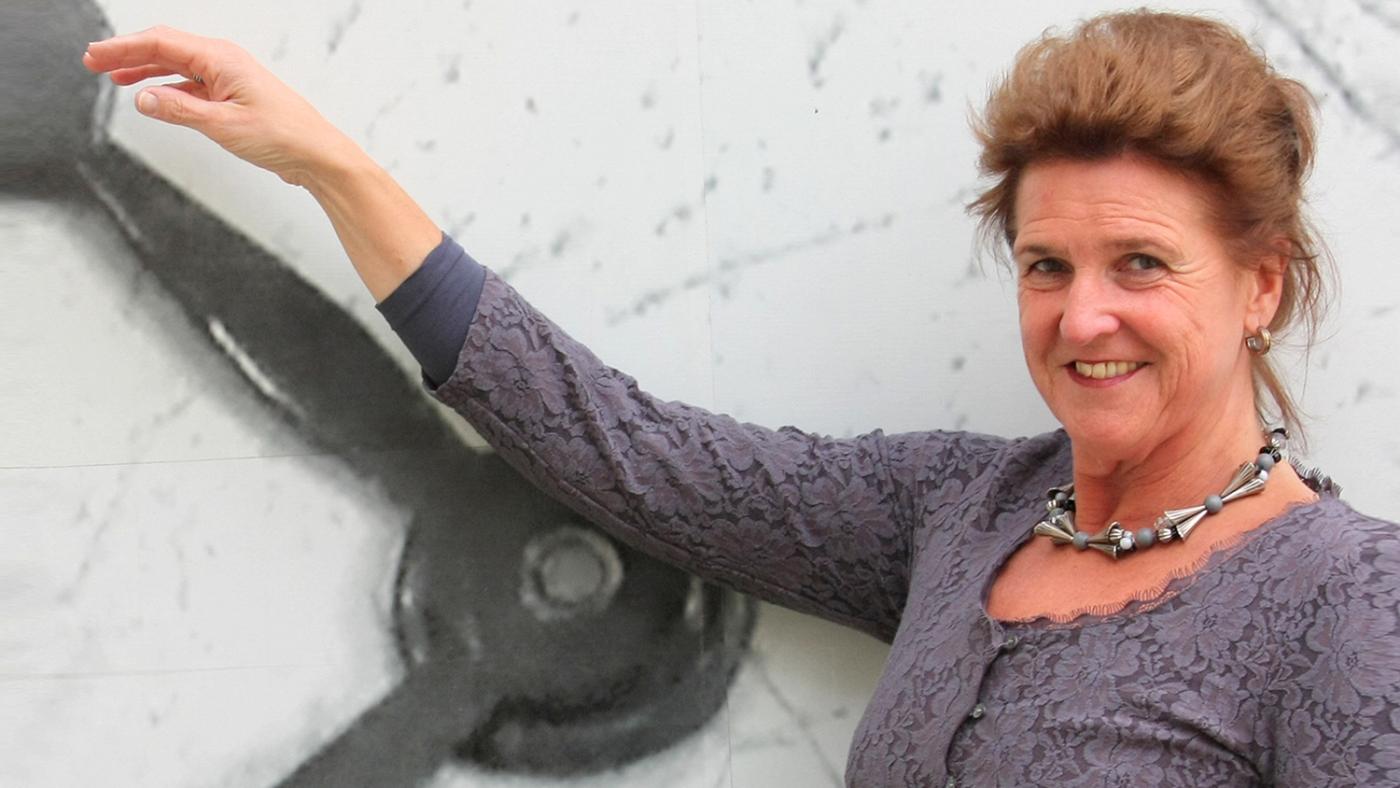
For Noordhof, this photo - taken as a joke in front of a jeweller's window - symbolises a new phase in her life. She is moving the clock's hands. Photo: courtesy of Cobi Noordhof.
Despite those considerations, she never “became sour”. She liked the university dynamics too much for that. “It’s always been interesting to see what’s happening in education and research. Especially with psychologists. You shouldn’t just be checking whether the toilet rolls are hanging straight, there’s so much more. And I constantly had new challenges and new positions. Incredibly fascinating.”
De Uithof, or later Utrecht Science Park, was where she belonged. Managers who tried to persuade her to accept a position in the city centre failed to convince her. “The city centre is where my youth was. Somehow, I always wanted to keep that separated from my job.”
‘Most of all, I will miss the people’
Formally, she isn’t saying goodbye to the university until March. She’s enjoying a sabbatical now. “It still feels like a long Christmas holiday when I can do all sorts of fun things. I don’t expect to miss my job, even though I loved being stimulated every day. I will definitely miss the people.”
She mentions the theatre play again. “There are so many people that I owe so much to – unfortunately, many of them are no longer with us. They taught me everything about my work but also about how to live your life.”